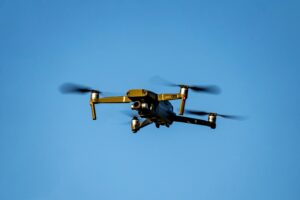
A robotic wheelchair helps to improve the physical condition of people with duchenne muscular dystrophy
February 1, 2020
5G-AURA: Mechanisms to optimise handover in 5G networks
February 1, 202001/02/2020
The research group Low Power Design, Test, Verification and Integrated Circuits for Security (QINE) at the UPC has worked to develop a cybersafe hardware system for the identification of integrated circuits and for new generation memory devices.

The project has been developed using prototypes of memristors, new generation memory devices that can store in a specific area ten times more information than current flash memories.
In the project, hardware strategies are proposed and analysed to detect and avoid the effects of external attacks on integrated circuits. Taking advantage of the natural variability of the device, unique digital fingerprints are implemented for each of the integrated circuits, which are hard to copy as a result. In addition, safe memory cells are proposed to restrict information leakage.
These studies were part of a three-year project (2015–2018) and received funding of 122,815 euros from the Spanish Ministry of Economy and Competitiveness.
Technology
You want to know more?
Related Projects
- The Barcelona Innovative Transportation (BIT), the Research Center in Automotive and Advanced Mobility (CER-AMA) and The Future Mobility Research Hub (CARNET) research groups from the Universitat Politècnica de Catalunya - BarcelonaTech (UPC) are participating in the E-MED project, which aims to optimise energy and resource efficiency in public transport systems by addressing energy price fluctuations through smart and participatory solutions across the Mediterranean region.
- The company Friselva S.A., Corporació Alimentària Guissona (bonÀrea), together with the Food Service Cluster and inLab FIB at the Universitat Politècnica de Catalunya - BarcelonaTech (UPC), are participating in the Hydroless project, which aims to optimise water consumption in meat production plants. The project includes an innovative solution to monitor and optimise water use at bonÀrea’s plant in Guissona, as well as the design and development of a digital twin of Friselva’s facilities in Riudellots de la Selva.
- The EU-funded Quick Challenge-Driven, Human-Centred Co-Creation Mechanism for INDUStry-Academia Collaborations (INDUSAC) project has successfully developed and validated a new, human-centred, challenge-driven co-creation mechanism that connects industry with academia across Europe. Over three years of implementation, the project has supported international teams of students and researchers in tackling innovation needs directly submitted by companies. The INDUSAC project has created a dynamic community of industry-academia stakeholders focused on circularity, general sustainability, digitalisation and industry 4.0.
- A research team led by the Mobile Robotics and Artificial Intelligence Group (RAIG) of the Institute of Robotics and Industrial Informatics (IRI, CSIC-UPC) at the Universitat Politècnica de Catalunya - BarcelonaTech (UPC) is taking part in the European project TRIFFID (auTonomous Robotic aId For increasing FIrst responDers efficiency). The aim is to develop a platform to support rescue operations in emergency situations. The initiative combines advanced robotics, artificial intelligence and immersive interfaces to enhance safety and accelerate response in hazardous environments.




